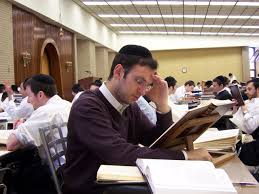From Learning to Working: Adding on Another Room

I just completed a three-year stint at a Cleveland Bais Yaakov teaching English Literature and Public Speaking. Since the school has neither internet access nor a secular library, I struggled in setting expectations for the girls’ requirement to do research for an informational speech. Eventually, I decided to assign a “biography speech.” Each student was asked to choose an ArtScroll or Feldheim biography of a gadol (Torah giant) and select three traits of this gadol as her focus. Despite the fact that my students’ speeches relied on a single source and were therefore one-sided, each year they came out rather good – at least according to my adjusted standards. The speeches were structured, organized, and well delivered. And as an unexpected bonus, I walked away feeling inspired by the stories of mesiras nefesh (self-sacrifice) and kavod haTorah (honor brought to the Torah) of these great Torah giants.











